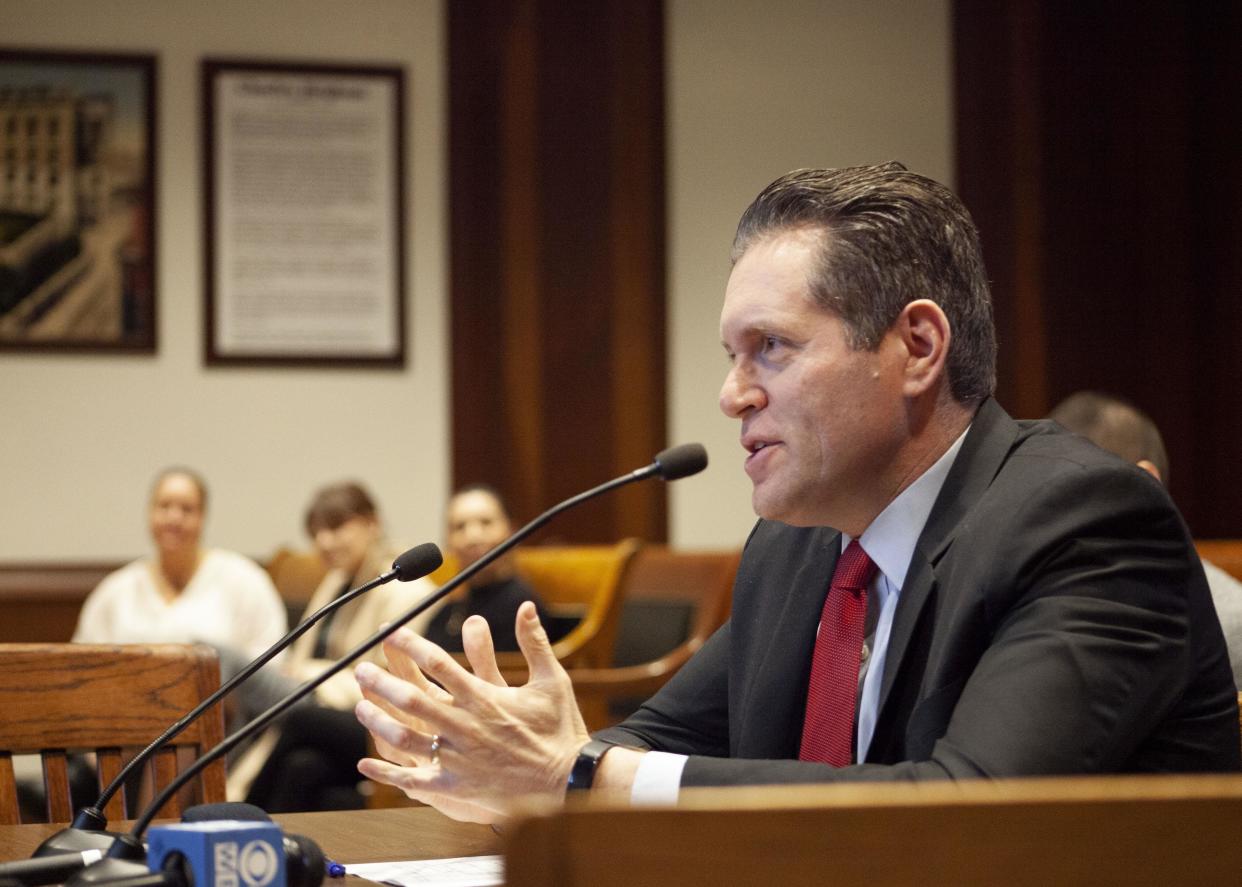Mass lawmakers urged to upgrade child safety restraints: Keep tots in rear-facing seats

Lagging behind its immediate neighbors and roughly two dozen states nationwide, Massachusetts lawmakers were urged to strengthen laws regarding child restraints in cars to ensure babies remain safer in motor vehicle accidents.
A bill, filed in multiple sessions, would require children under the age of two, or weighing less than 30 pounds, ride in rear-facing carriers in the back seats of cars. Children would also be required to ride restrained through age 8 or until they reach 57 inches in height.
Recognized as a “best practice,” Massachusetts legislators were urged to ensure the state law clearly matched best practices and ensure parents and guardians are clear on how to restrain their youngsters in cars.
What's the right thing to do?
“Parents ask what is the right thing to do,” said Art Kinsman, regional administrator of the National Highway Traffic Safety Administration. He said ensuring that the law matches best practices will clarify the issue.
New science since the passage of the 2008 measure requiring small children to ride in booster seats compelled the bills’ sponsor Sen. Barry Finegold, D-Andover, to promote the measure.
“Rear-facing is the safest way for young children to ride,” Finegold told the Joint Committee on Public Safety and Homeland Security in a brief hearing Monday. Motor vehicle crashes in Massachusetts have almost reached pre-pandemic levels, Finegold told the legislators, explaining that the latest statistics reveal there were 130,000 reported motor vehicle crashes in 2022 that resulted in 30,000 injuries overall.
“It’s like a turtle shell. It cradles a child, protects the head, neck and spine, while it absorbs most of the impact,” said Barbara DiGirolamo of Boston Children’s Hospital where she is in charge of the facility’s injury prevention program.
In her testimony, DiGirolamo described what happens in a crash where toddlers are sitting in a forward-facing seat: “The child is thrown forward, causing brain and spinal cord injuries, and even internal decapitations.”
Keeping children safe riding in cars
The hospital sees an average of 200 patients with injuries stemming from motor vehicle crashes a year and has treated about 500 so far in 2023, DiGirolamo said. She urged lawmakers to promote the measure.
“We need to keep children safe from these unfortunate events,” DiGirolamo said.
Rep. Carlos Gonzalez, D-Springfield, co-chairman of the committee, was assured that MassHealth provides convertible car seats to the state’s low-wage earners upon the birth of their children. The seats, which can transform from a rear- to a forward-facing seat as a child grows, will not expire before six years have passed.
“We had a car seat check in Springfield,” Gonzalez said, remembering his astonishment at the different seats for different sizes of children and learning that the seats expire. He expressed concern with language barriers and the need for multiple seats for each child that may pose financial constraints for low-wage earners.
Massachusetts Department of Transportation also has a program that covers youngsters through age 8, offering boosters to low-income residents.
Mandi Summers, director of the Massachusetts Child Passenger Safety Program at Bay State Children’s Hospital, said that a study conducted in five states regarding the effectiveness of the booster seat law found that the use of boosters increased three-fold once the law went into effect. Having children ride in the back seat increased by 6% and there was a corresponding decrease in injuries: 5% decrease in non-fatal injuries and 17% decrease in incapacitating or fatal ones.
“One preventable child injury or death is one too many,” Summers said.
This article originally appeared on Telegram & Gazette: Rear-facing seats cradle toddlers, keeping heads, necks, spines safe

